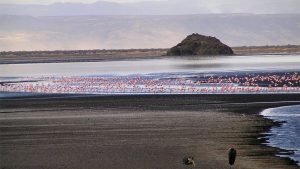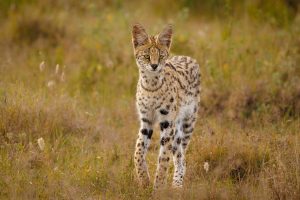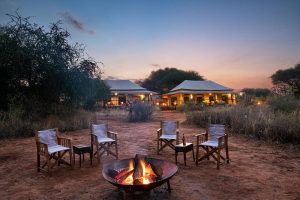Planning your dream safari or Kilimanjaro adventure in 2025? Whether it’s your first time or you’re returning for more wild beauty, it’s natural to have questions. Here’s a helpful guide with answers to the most frequently asked questions about traveling to Tanzania in 2025.
✈️ 1. Do I Need a Visa to Visit Tanzania?
Yes — most travelers need a visa. You can apply for an e-Visa online before your trip, or get a visa on arrival at major airports like Kilimanjaro (JRO), Dar es Salaam (DAR), and Zanzibar (ZNZ). The fee is usually $50, or $100 for U.S. citizens.
Some nationalities are visa-exempt, while others may need a referral visa. Make sure your passport is valid for at least 6 months beyond your travel dates.
💉 2. Are There Any Vaccination Requirements?
-
Yellow Fever: Required if you’re coming from or transiting through a yellow fever–endemic country.
-
COVID-19: As of 2025, there are no mandatory COVID tests or vaccinations for entry.
-
Malaria risk: High in most areas — bring preventive medication and insect repellent.
🕑 3. What’s the Best Time to Visit Tanzania?
Tanzania is a year-round destination, but the best times depend on your interests:
-
June to October: Dry season — perfect for wildlife safaris and the Great Migration.
-
January to March: Calving season in the southern Serengeti — great for photographers.
-
November & April-May: Wet seasons — fewer tourists, lush landscapes, lower prices.
🧳 4. What Should I Pack for My Safari or Climb?
-
Lightweight, neutral-colored clothing (avoid black or blue)
-
Long sleeves for sun and mosquito protection
-
A warm jacket for early morning game drives or mountain treks
-
Comfortable hiking boots for Kilimanjaro or Meru
-
Sunscreen, hat, sunglasses, and refillable water bottle
-
Plug adapter (Tanzania uses Type D & G sockets, 220–240V)
📱 5. Is There Internet and Mobile Coverage?
Yes — mobile coverage is available in cities and even some national parks. Buy a local SIM card (e.g., Vodacom or Airtel) for better data rates. Wi-Fi is common in hotels and lodges but may be slow in remote areas.
💵 6. What Currency Is Used?
The local currency is the Tanzanian Shilling (TZS), but US dollars (USD) are widely accepted — especially for tourism-related services.
Tip: Bring clean, crisp USD notes (issued after 2009), and exchange small amounts as needed. Credit cards are accepted in hotels and large lodges but carry cash for tips and small shops.
🍽️ 7. Is the Food Safe?
Yes — food in lodges, hotels, and camps is generally safe and prepared to high standards. Stick to bottled or filtered water, avoid raw street food, and consider packing medications for stomach upsets, just in case.
🚙 8. Are Safaris Safe?
Absolutely — when booked with a reputable company like Kilipath African Safaris, your safari will be guided by trained professionals who prioritize your safety, comfort, and experience. Always follow your guide’s instructions and respect wildlife distances.
📷 9. What About Photography on Safari?
-
Bring a zoom lens (at least 200mm) for wildlife shots.
-
Sunrise and sunset are perfect for golden lighting.
-
Bring extra batteries and memory cards — charging may be limited in some camps.
-
Ask your guide before taking photos of local people or Maasai villages.
🌍 10. Can I Combine Safari, Mountain, and Beach in One Trip?
Yes! That’s one of the best things about Tanzania. Many travelers combine:
-
Northern Circuit Safari (Serengeti, Ngorongoro, Tarangire)
-
Mount Kilimanjaro trek
-
Zanzibar beach holiday
Kilipath African Safaris offers tailor-made itineraries that let you experience it all — without the stress of planning.
🧭 Final Tip: Travel With Confidence
Whether you’re here for the Great Migration, Kilimanjaro’s summit, or the white sands of Zanzibar, 2025 is the perfect year to explore Tanzania.
At Kilipath African Safaris, we’re here to guide you every step of the way — from visa support to crafting the perfect itinerary.
📩 Ready to start planning your adventure? Contact us today — and let’s bring your dream trip to life.





